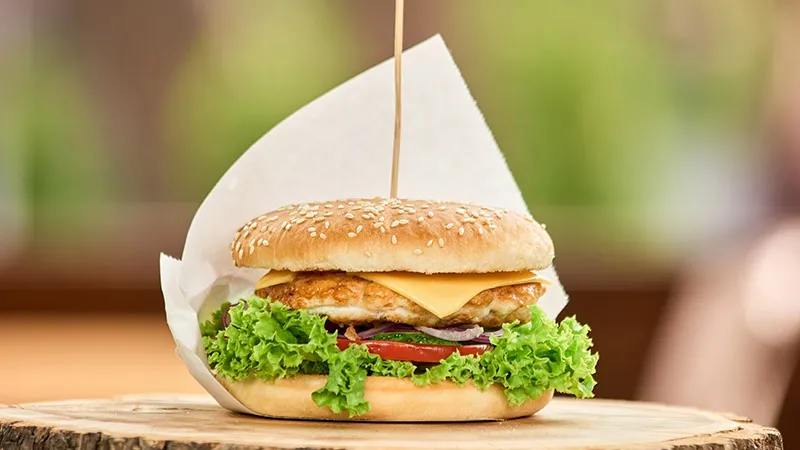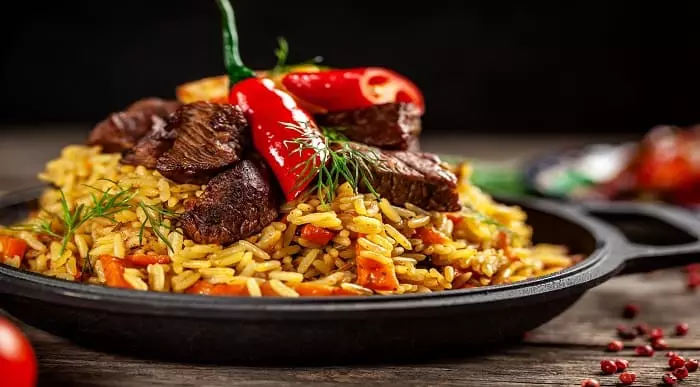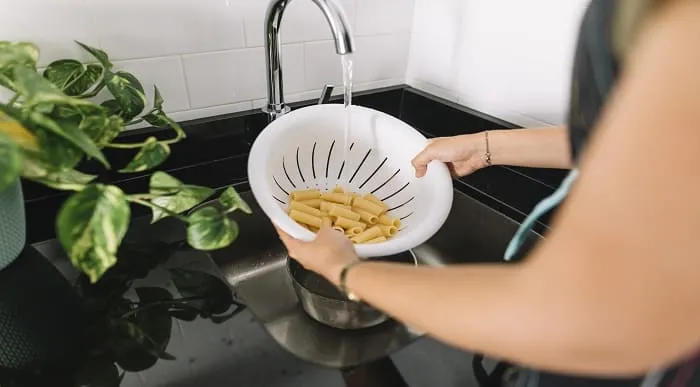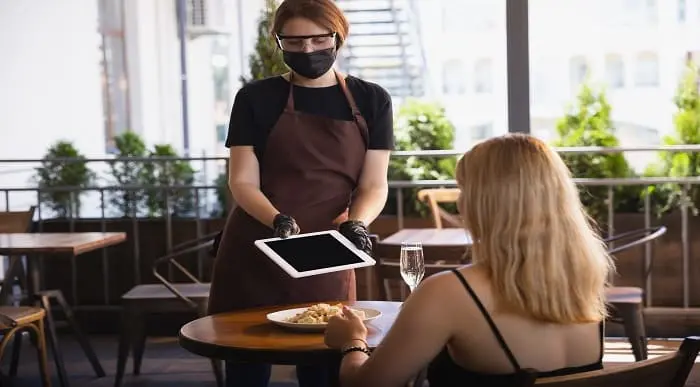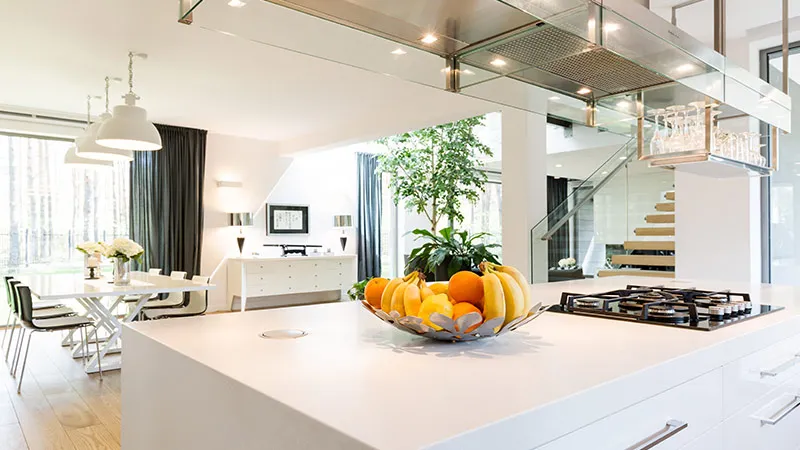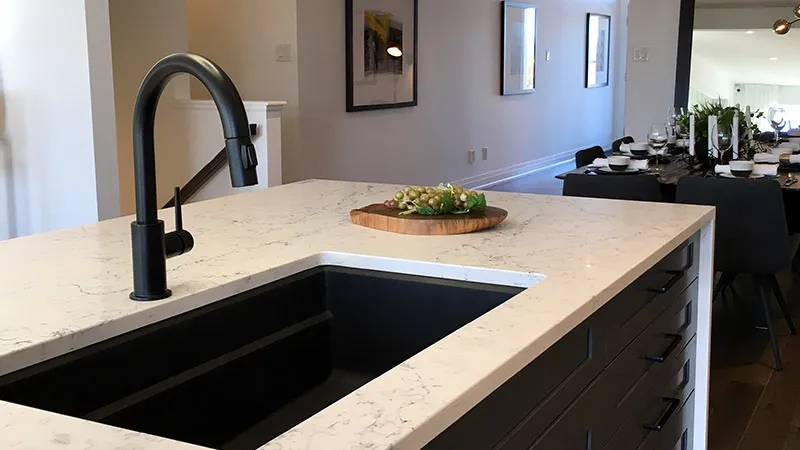Food Hygiene & Safety
Why is a Well Designed Kitchen Important to Food Safety – Guide
Why is a well designed kitchen important to food safety? The simple answer is, that it minimises the risk of an outbreak of food poisoning.
Most of the food poisoning occurrences are due to the poor storage of food, lack of personal hygiene practices when handling food, dirty kitchen floors, irregular garbage disposal and so on. A well designed kitchen will reduce the risk of inadequate kitchen hygiene and serve the purpose of food safety.
Learn what is food safety and why it is important, the principles of a well designed kitchen and its benefits from this blog.
Food safety is used as a scientific method/discipline describing handling, preparation, and storage of food in ways that prevent foodborne illness.
Pathogens can contaminate food like bacteria, viruses, mould or fungus at any point of production and distribution. Many foodborne disease incidents occur because foods are either prepared improperly or mishandled at home or food service establishments.
Unfortunately, not all food handlers and consumers are aware of adopting basic hygienic practices when buying, selling and preparing food. Thus, foodborne diseases and food-related injuries occur due to the lack of proper management and control of food safety.
Table of Content
Why is Food Safety Important?
Most of the food safety issues are caused due to pathogenic microorganisms resulting in food poisoning or food intoxication. About 1600 people are infected from listeria each year, and 260 die. Furthermore, about 380 people die from the 1 million cases of Salmonella in the country each year.
Also, the World Health Organisation estimated that unsafe food causes 600 million cases of foodborne diseases and 420,000 deaths. Undoubtedly, the lack of food safety can take a heavy toll on health. As a result, the economic progress of a country might be affected due to productivity loss and medical expenses might rise, burdening the consumers.
A few reasons why food safety is important are-
Protects from Foodborne Diseases
One of the major threats to both consumers and business owners is foodborne diseases. The diseases are caused due to harmful bacteria, yeasts, fungi, parasites, or viruses. Moreover, chemical substances, heavy metals, and excessive additives can also lead to foodborne diseases and acute poisoning. All these can cause minor to fatal health issues like diarrhoea, food poisoning, E.coli, Hepatitis A and so on. If proper safety measures are taken, the chances of being affected by these diseases will reduce.
Reduces Cost Expenditure
If a particular food business fails to implement an effective food safety protocol, it can lead to contaminated products entering the food chain. Once a defective product is identified, food businesses face dramatic disruptions in their operations as they manage and assume the cost for product recalls. Product recalls can cost companies more and affect profits leading to business closure. So, if food safety while producing and handling foods is ensured, unnecessary cost expenditure might be reduced.
Reduces Waste
Food products that have food safety issues may be subjected to disposal. Through the practice of proper food safety and a better food production process, food businesses can cut waste. Food safety management systems also ensure detecting and controlling food hazards even before the production begins. This reduces more waste that would have been produced if processed further.
Ensures Sustainable Food Production
Proper food safety practices adopt food manufacturing processes that protect the consumers and take the environment into account. For example, reduced synthetic fertilisers that might leach into food products are controlled under food safety legislation. Food safety practices also ensure clean drinking water and the reduction of air, sewage, and other environmental pollutants that significantly contribute to the environment.
Why is a Well Designed Kitchen Important?
Food preparation and storage require additional hygiene that begins with a well-designed kitchen. We often do not think twice before putting eatables anywhere in the kitchen. But, there can be bacteria present on the worktops, sinks or on the kitchen floor that we cannot see with our bare eyes. That is why it is essential to design the kitchen in such a way that it becomes easy to keep every corner of a kitchen safe and sanitised for food.
The Basic Principles of a Well Designed Kitchen:
You might dream of a Pinterest inspired kitchen that gives aesthetic pleasure. However, your kitchen needs to be clean and germ-free, along with the aesthetics. Only a well designed kitchen that has been created after proper planning and following the basic principles can ensure food safety and hygiene in the kitchen. Wondering how? Have a look.
Flow of Food and Materials
A well-designed kitchen should be such that everything will systematically take place. The dry storage area should be near the receiving area, but the waste disposal and warewashing areas should be separate from the food preparation and meal cooking areas. Cooked meals will exit the kitchen on one side and dirty dishes will enter the kitchen on the other. Following this principle will keep the kitchen clean and food safe and will also ensure a well-organised orderly system.
Top Courses of this Category
Adequate Storage Space
Large space for storage prevents the overlapping of foods and cross-contamination. There should be separate storage for keeping known allergens such as flour, breaded products, nuts, shellfish and fish. Colour coded utensils, cutting boards and serving dishes will also help reduce any risk of allergen cross-contamination. Large space in the kitchen ensures ventilation and promotes a breathing environment.
Kitchen Lighting
Strong lighting illuminates your kitchen, allowing you visibility when cleaning your kitchen. Meat, fish, or vegetable fragments might be sitting in a dark corner, attracting unwanted bacteria and insects. These would never go unnoticed when there is proper lighting. In a kitchen area, it is important to have three types of lighting; overhead lighting for general illumination, spotlighting for reducing shadows and accent for drawing attention to your most gorgeous design elements.
Flooring
When it comes to maintaining food safety and hygiene, flooring can play a significant role. Your kitchen flooring should be of a light colour, non-slippery and shouldn’t absorb spilt water or oils. It must seal the entire floor and wall area without any gaps for bacteria to grow or insects and rodents to penetrate. Any wall or floor tiles should have easy-to-clean and disinfect non-porous grout.
Antibacterial Countertops
In order to reduce the risk of bacterial infections and viruses, varieties of stones, marbles and glasses, we should use countertops having antibacterial properties. The heat and water-resistant countertops restrict food poisoning as they do not let water remain over the tops.
Hood or Ceiling Fan Instalment
If you don’t want the smell of the bacon you cooked yesterday to overpower the beauty and hygiene of your kitchen, you should install an oven hood. Oven hoods work well to vent smoke, heat and smells outside the kitchen. If you don’t have the budget for a hood, a ceiling fan can also help to exit the smoke.
Sink Facility
Sinks are easy to access to water and are another top priority in a kitchen. Hence we should divide it into three sections washing, rinsing and sanitising. We should sanitise sinks after every use to maintain hygiene.
Trash Bin Placement
Be careful during the placement of your trash bin. Storing waste near the fridge or cooking area might allow insects, germs and bacteria to contaminate food. The trash bin should be away from the countertops. Also, keep separate bins for regular trash, paper and plastic.
FAQs
Why is it important to have a well-designed kitchen?
Having a well-designed kitchen is important because it not only increases the efficiency of cooking and cleaning but also creates an aesthetically pleasing environment.
Do kitchens need ventilation?
Yes, kitchens need ventilation because it helps prevent airborne contaminants and odours from accumulating in the kitchen and allows for proper air circulation and temperature control.
What is a commercial kitchen regulation?
Commercial kitchen regulations are guidelines put in place to ensure the safety of food being prepared in restaurants, catering establishments, and other businesses that serve food. These regulations cover everything from food storage and preparation to hand-washing and kitchen cleanliness.
What are the food safety standards?
Food safety standards are set in place to prevent food-borne illnesses and protect public health. The standards involve monitoring and maintaining temperatures to prevent bacterial growth, cleaning and sanitising food preparation surfaces, proper handwashing techniques, and correctly storing food to prevent contamination and cross-contamination between raw and cooked food items.
Who has the responsibility to ensure the safety of food?
The food that is produced, sold, or served to the general public by a food business must be safe for human consumption. This responsibility falls on the business owners, managers, and employees.
Conclusion:
A well-designed kitchen and effective hygiene are desirable for every professional and household kitchen. So, before designing your kitchen, ensure that the kitchen serves the purpose of cooking and helps maintain food safety when storing, preparing and cooking food.
What to Read Next:
- Food Safety Management System: Step by Step Complete Guide
- Food Hygiene Certificate to Sell Sweets – It’s Mandatory or Not
- Can You Reheat Chicken? Storage, Defrosting and Reheating Techniques
- Can You Reheat Rice? What is The Science of Reheating Rice
- What is the Difference between Chef and Cook
- Health Safety and Hygiene Rules to Follow in the Kitchen
- 7 Baking Tools and Equipment – A Complete List



